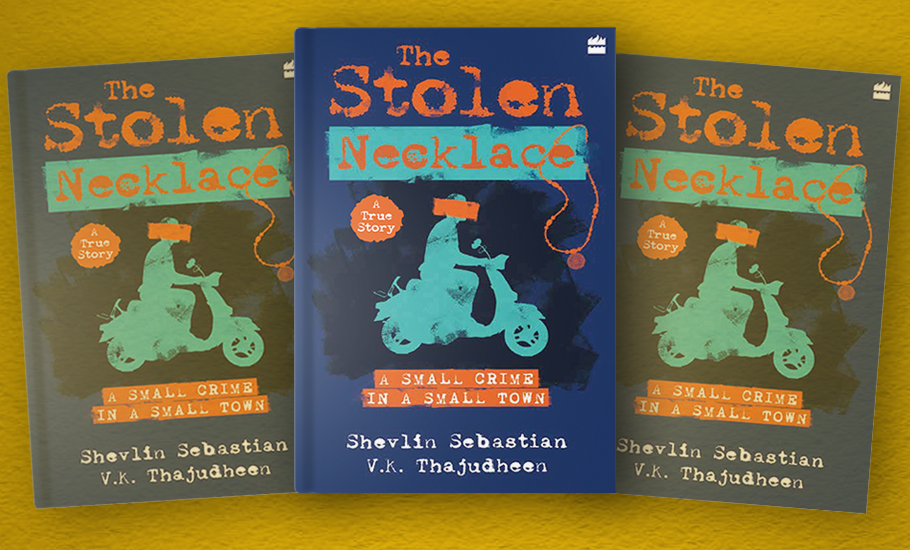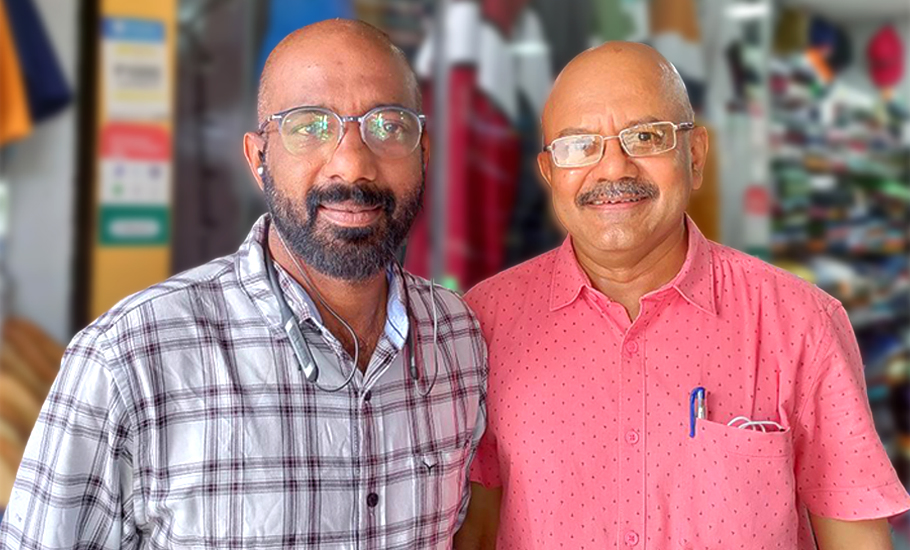
The Stolen Necklace review: A gripping tale of a Muslim man’s fight for justice in Kerala

“When Thajudheen took off his shirt, he raised his hands to his chest, in a way to protect his dignity. He felt like a lesser human being than the fully clothed police officers in the room. All the police officers, including those sitting behind the desks, shouted at him. One called him a bastard. Another said, ‘What sort of parents produced you?’”
The above excerpt from The Stolen Necklace: A Small Crime in a Small Town, published by HarperCollins India, sums up the painful predicament of a common man, who falls victim to the unscrupulous ways of a police department, and a few officers who play the judge, jury and executioner with little regard for the rulebook. Based on the life of V.K. Thajudheen, a Qatar-based businessman, whose story of wrongful arrest and incarceration in 2018 made headlines in Malayalam media, the book — co-written by Kochi-based writer Shevlin Sebastian and Thajudheen — narrates a gripping tale of police injustice and one man’s relentless fight against it.
A critique of the criminal justice system
Two days after his daughter’s nikah, Thajudheen, while returning from a celebratory dinner, is stopped by the police en route to home. He is accused of stealing a gold necklace and within minutes shoved into a police van and taken to the police station. The police pin the crime on Thajudheen on the sole basis of a CCTV footage in which a man resembling him is seen scooting with the necklace after snatching it from a woman’s neck.
Thajudheen’s pleas that it was a case of mistaken identity fall on deaf ears. The police first try to extract the necklace’s price from Thajudheen, and when he objects, attempt to force a confession out of him. Thajudheen is starved, shamed, slapped and stripped of dignity before being sent to court. He spends 54 days in jail before he can prove himself innocent. The episode exacts a heavy toll on his reputation and career, and stamps a trauma in the psyche of his family from which they have yet to recover.
Also read: Marginlands review: How India has brought its landscapes to the brink of loss, devastation
A critique of the country’s faulty criminal justice system and the ‘goondaism’ of the police, who in popular media are portrayed as swashbuckling heroes, the book through 200-odd pages shows how one wanton act by these ‘custodians of justice,’ in the tearing hurry to close a case without proper investigation, can destroy a common man’s life. As Sebastian says in the preface, the incident is a stark reminder that “if it can happen to him, it can happen to you as well”. There are sections in the book where Thajudheen ruminates how absolute power and free will have hardened the police and stripped them of humanity and the faculty of reasoning.
The contours of the case
The book walks the reader through the entire case, including Thajudheen’s arrest, his incarceration and his exoneration, and through intermittent anecdotes gives a window into his past life that has shaped the man he is today. The narrative is interspersed with episodes from Kerala’s socio-political milieu, giving readers glimpses of the RSS-CPI(M) feud, political murders and the Supreme Court’s controversial verdict on the entry of women to the Sabarimala shrine.

Subtly hinting at the vulnerable state of minorities in India and how a respectable Muslim can be loosely branded a “terrorist”, the book recounts several instances where innocent people arrested by the law-enforcement agencies under the draconian laws like the Unlawful Activities (Prevention) Act or UAPA have lost years in jails before being proven not guilty. For such individuals, social ostracism has become a way of life.
Also read: Truth/Untruth review: Mahasweta Devi’s exploration of love and lust in Calcutta of 1980s
With over 30 years of journalistic writing under his belt, Sebastian, who is also the author of four children’s novels, employs a narrative that is lucid, unintimidating and devoid of any superfluous traits. With racy writing and graphic detailing — be it that of a ghastly suicide, a chapter from a brothel or the travails of prison life — Sebastian manages to string together a riveting account of Thajudheen’s life.
The stigma of incarceration
Particularly engaging are the parts where the book narrates Thajudheen’s brush with his fellow prisoners — robbers, bomb makers, political goons, and sexual offenders — who he realises by the end of his incarceration, are as human as he is despite their failings.
If M. Chandrakumar’s novel Lock Up: Jottings of an Ordinary Man (2017) gave a chilling account of frame-ups of innocents by police and their nightmarish end in encounter deaths, The Stolen Necklace poignantly captures the stigma of incarceration that latches on to the wronged person for the rest of their life.
Also read: Maulana Azad: A Life review: The enduring legacy of a freedom fighter and nation-builder
“After three days, Thajudheen stepped out of his house, alone. He walked to a shop to buy a packet of cigarettes. Thajudheen noticed the customers staring at him. Most had a look that said, ‘You are a thief.’ A couple of men whispered to each other. To his ears, it sounded like a saw cutting through wood in slow motion,” write the authors, reflecting the state of the mind of an individual who has been proven guilty by everyone, but the law.
In the end, a resilient Thajudheen clears his name, but still doesn’t get a happy ending. The book leaves one with many questions. The ones that rankle the most are: who will make up for Thajudheen’s lost dignity, and who will give his lost time back?


